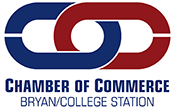For most small business owners, expenses aren’t just numbers on a spreadsheet, they’re gut decisions made at the intersection of ambition and survival. There’s the temptation to cut corners early, to go cheap, to make do with what works “for now.” But some investments, while painful upfront, aren’t about convenience—they’re about keeping your business breathing five years from now. And the right technologies, the ones built not for flash but for function, are the quiet workhorses of long-term savings and stability.
Cloud Accounting Tools Save You from Yourself
Let’s be honest. Unless you’re one of the rare ones who enjoys tracking receipts and reconciling monthly statements, accounting is where corners get cut. Manual spreadsheets get messy, and it only takes one missed tax deadline or payroll error to turn a manageable issue into a multi-thousand-dollar mistake. Cloud-based platforms do more than just tally numbers. They categorize your expenses in real time, alert you to oddities, and connect seamlessly with your bank. Over time, you’ll save not just money, but hours of after-hours work you shouldn’t be doing in the first place.
Password-Protected PDFs Are Underrated Shields
There’s something simple but effective about putting a lock on the digital front door, and that’s exactly what password-protected PDFs offer. For contracts, invoices, or design blueprints that hold sensitive information, this kind of basic encryption can block easy access from anyone who shouldn’t be peeking. And if you’re worried about needing to tweak those files later, you don’t have to start from scratch—use a PDF editor to make clean updates without converting formats or mangling layouts. If you’re unsure where to begin, there are plenty of guidelines on how to edit PDFs that walk you through uploading, editing, and exporting like a pro.
Inventory Software Prevents You from Bleeding Cash
Poor inventory management is one of those slow drips that doesn’t scream until your shelves are full of dead stock or, worse, you’ve run out of your best seller on a Friday night. A good system tracks your movement patterns, sends restock alerts, and even forecasts future demand based on past sales trends. The trick is not just having the numbers, but having them when they’re still actionable. You don’t notice the savings in month one. But by month twelve, when you haven’t overbought or undersold, you feel it. And so does your bottom line.
Cybersecurity Isn’t Optional Anymore
The small business owner who still thinks they’re too small to be hacked probably also still uses “admin” as a password. The reality is that you're a soft target for the exact reason you think you're not a target at all. One phishing email clicked by a distracted employee can freeze your operations, leak your client data, or cost you thousands in ransomware demands. Investing in small business security infrastructure like multi-factor authentication, endpoint protection, and backup systems isn't about fear-mongering. It’s about acknowledging that one breach can cripple trust and stall growth permanently.
CRM Software Gives You Memory You Don’t Have
Customers want to feel remembered. They want to feel like they matter more than just their most recent order. A good customer relationship management platform stores more than contact info—it logs every touchpoint, complaint, and preference. So when your client calls back after six months, you don’t say “Remind me again who you are?” You say, “Last time you said you preferred the darker roast, is that still true?” CRM isn’t just for sales, it’s for relationships. And in small business, relationships are currency.
Project Management Tools Keep Everyone Sane
If you’re managing your team with scattered emails, post-it notes, and vague recollections of yesterday’s meeting, you're already behind. Things get lost. Deadlines slip. Accountability vanishes. Project management platforms don’t just organize work—they surface what's urgent, assign it clearly, and track progress without micromanaging. The clarity it brings can reduce redundant meetings and costly mistakes. Modern tools like these act like a shared brain for your team, one that never forgets and doesn’t get distracted.
POS Systems Are More Than Just Fancy Registers
A modern point-of-sale system does more than ring up orders. It tells you what’s selling, when it’s selling, and who’s buying it. Integrated with inventory, customer data, and analytics, a POS system becomes a lens into how your business actually runs. Maybe Tuesdays are unexpectedly strong, or maybe your best product isn’t your top earner because it’s too often discounted. You’d never know that with a basic cash register. The upfront cost stings, but the insight pays off with sharper decisions week after week.
You’re not trying to build a business that survives next quarter. You’re trying to build something that still makes sense five years from now, even if the economy throws you a curveball or two. The technologies that deserve your money aren’t always flashy, but they earn their keep day after day, month after month. They don’t eliminate problems, but they reduce the margin of error that kills most small ventures. Think of them not as costs, but as co-founders—quiet, reliable, and always working even when you’re not.
Join the Bryan/College Station Chamber of Commerce today and unlock opportunities to grow your business, connect with local leaders, and make a lasting impact in the community!This Hot Deal is promoted by Bryan-College Station Chamber of Commerce .

